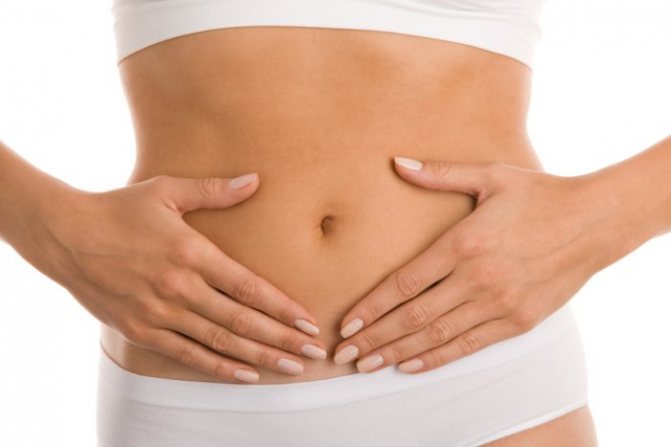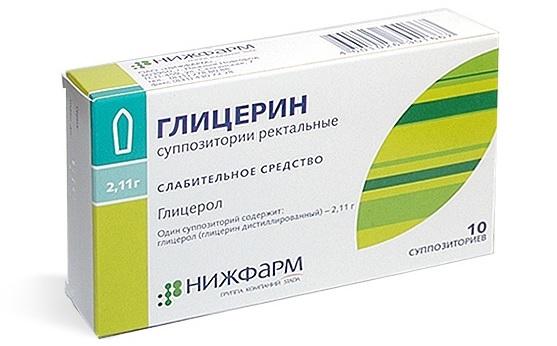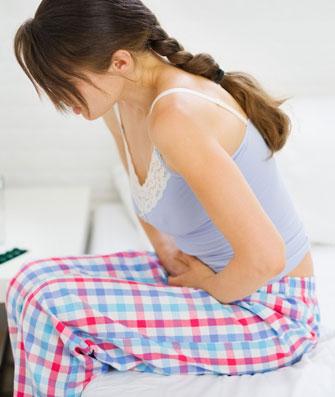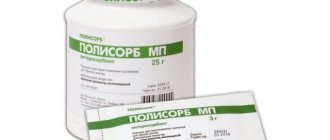For many women, intestinal function is disrupted during pregnancy, and after childbirth this problem does not disappear. And therefore, most nursing mothers suffer from dysbacteriosis, defecation disorders, and hemorrhoids. To normalize digestion and intestinal function, you need to review your diet and take medications that are safe for the newborn.
Phytomucil is a natural herbal remedy for eliminating digestive problems. Dietary supplement removes cholesterol, stimulates intestinal evacuation, and improves peristalsis.
Properties of the drug
Phytomucil is produced in powder form, from which a solution for oral administration is prepared. The main components of the herbal preparation are the shell of flea grass fruits and home plum. Thanks to these components, the drug contains useful substances (tannins, pectins, organic acids).
The shell of flea grass fruit contains hydrophilic fibers that retain liquid; they soften the contents of the colon and increase its volume. Plum fruits are valuable due to their astringent, laxative and diuretic properties. The enzymes and phytoncides contained in plums improve digestion and stimulate intestinal motility.
With regular use, the motor-evacuation function of the digestive tract improves. The herbal preparation eliminates functional intestinal disorders and defecation disorders. The biological supplement is used to restore normal functioning of the stomach and intestines during pregnancy.
With the help of Fitomucil, intestinal dysbiosis and hemorrhoids are treated. In addition, the drug promotes the healing of cracks in the anus. The dietary supplement is used for diabetes mellitus to reduce blood cholesterol. Glycosides and flavonoids stimulate chemoreceptors and accelerate the flow of bile.
Dietary supplements are used to combat excess weight. The herbal remedy penetrates the stomach, gives a feeling of fullness, and as a result, the person eats less food. The low-calorie dietary supplement does not provoke inflammatory processes and dehydration. And thanks to fiber, fats and carbohydrates are quickly eliminated from the body.

With regular use, weight gradually decreases. The drug does not cause dependence; for this reason, Fitomucil can be taken multiple times.
Indications and contraindications
Fitomucil is prescribed in the following cases:
- Poor nutrition, irregular meals;
- Defecation disorders (constipation, diarrhea) due to dysbacteriosis;
- Diverticular disease;
- Haemorrhoids;
- Physical inactivity;
- Excess weight;
- High cholesterol;
- Deficiency of thyroid hormones in the thyroid gland;
- Diabetes mellitus type 2.

As the instructions say, the herbal preparation eliminates constipation and improves colon motility in pregnant and lactating women. The dietary supplement also prevents heart and vascular diseases, obesity, and colon cancer.
- Hypersensitivity to the components of the herbal preparation;
- Intestinal obstruction;
- Acute inflammatory diseases of the digestive tract.
Patients aged 5 to 15 years should take the drug with caution.
Dosage
The treatment regimen using Fitomucil is determined by the doctor individually for each patient. But there is a standard regimen that doctors prescribe most often - 5 g (1 sachet) of powder 2 to 4 times in 24 hours. The drug is diluted with water, milk or juice and taken orally. After 15 minutes you need to drink another glass of water.
There is a stepwise scheme for increasing the dosage: in the first 7 days the patient takes 5–10 g of powder, in the second week – from 15 to 20 g. Do not combine the dietary supplement with other medications, as Fitomucil blocks the effect of the latter.
Fitomucil during lactation
According to the instructions, Fitomucil can be used during breastfeeding after a doctor's prescription. The herbal preparation restores intestinal function, which is disrupted due to frequent constipation and diarrhea. The dietary supplement normalizes the functioning of the digestive tract after a difficult birth.

According to doctors, the dietary supplement has no side effects. However, to protect your child, consult your doctor before using it. The herbal preparation is prohibited to be used only if there is hypersensitivity to its components and other contraindications in the mother or child.
Characteristics of glycerin
Glycerin, which is part of rectal suppositories, causes mild irritation of the intestines, which causes the urge to defecate. The drug also lubricates the passage and softens stool. Glycerin suppositories can be used during pregnancy and breastfeeding. The drug is also available in dosages for infants.

Side effects may include a mild burning sensation in the anus. Also, with prolonged use, glycerin suppositories can become addictive.
Women with acute hemorrhoids should not use glycerin suppositories. Candles also have a number of contraindications. These include intolerance to components, rectal cancer, paraproctitis.
Read also:
What a woman should know and do to avoid ruptures after childbirth
As soon as bowel function is restored, the use of suppositories must be stopped. Glycerin suppositories should be used only in accordance with the instructions or recommendations of a doctor.
Recommendations for improving the functioning of the digestive tract
To improve digestion and normalize intestinal function, a nursing woman must not only take medications, but also follow the following rules:

- Eat food often (5-6 times), but in small portions.
- Let a nutritionist create your diet to quickly restore the digestive tract.
- Exercise daily and take walks outside.
- Don't ignore the urge to defecate.
- Avoid alcoholic and tonic drinks (coffee, tea), fast food, and fatty meats.
- Avoid citrus fruits, honey, nuts.
Thus, in order to establish normal functioning of the digestive tract, a lactating woman can take Fitomucil, but only after the doctor’s permission. A nursing mother must strictly follow the dosage, frequency of administration and other doctor’s recommendations.
Very often, young mothers face the problem of constipation. Nursing women are susceptible to this scourge more often than others, which is due to the peculiarities of a strict diet.
Constipation itself is a difficulty in defecation, its absence for more than three days. Constipation causes stool to become hard and dry, causing pain and discomfort. The first weeks after the birth of a baby are a crisis period for women in this regard. The problem of constipation has not only physiological prerequisites, but also psychological ones.
Coping with constipation can be quite simple - you just need to adjust your diet. Constipation in a nursing mother can be eliminated with the help of laxatives, which are not prohibited for use in this case.
Treatment of constipation
In order to get rid of constipation in young mothers, sometimes it is enough to establish a drinking regime, adjust the diet and create a favorable emotional background. Practice shows that it is often possible to do without the use of laxatives. We propose to consider the basic principles of treating the disease.
Dietary fiber included in the daily diet affects the stimulation of intestinal function. These elements are easiest to find in products of plant origin: salad, vegetables, berries, dried fruits, cereals, fruits. Breastfeeding mothers are often afraid to eat a variety of foods, as they can cause colic or allergies in the baby.
Dr. Komarovsky reassures young mothers - most babies under 4 months often experience colic due to age-related intestinal characteristics. It is not recommended to exclude vegetables and fruits from your diet, which you think can harm the baby by creating conditions for gas formation. You should avoid exotic fruits and legumes in your diet. Vegetables and fruits grown in your native region will be very useful if you prepare them correctly: stew, bake or boil.
Carefully monitor your baby for any reactions (skin rashes, bloating) when introducing new types of foods into your diet. You can improve your bowel movements by including the following nutritional elements in your daily diet:
The correct drinking regime can prevent the occurrence of constipation and will also contribute to their speedy elimination. The average dose of liquid to drink daily is 2 liters. It is desirable that half be pure water, excluding teas, compotes and other things.
If there are no contraindications, you can start strengthening your abdominal muscles. It is recommended to do exercises for 5-10 minutes, using only those types of activities that are allowed in the first weeks after childbirth. To perform it correctly, we recommend watching video tutorials.
Many drugs are not approved for use by nursing mothers due to the risk of side effects that may occur in the child. When choosing, pay attention to ensure that the product is not absorbed into the intestines and does not pass into breast milk. Drugs allowed during lactation:
A laxative during lactation in the form of suppositories will have a less pronounced effect than in the form of oral solutions. Suppositories actively work only in the large intestine, and lactulose and macrogol included in the solutions will also affect the upper stool.
The drug Duphalac in the form of syrup is offered in jars of different sizes: 200, 500 and 1000 ml. It’s convenient that the instructions are located right on the bottle. Taking the product is very simple, because the kit includes a measuring cap, thanks to which you can easily measure the required amount of syrup. The dose of Duphalac will be individual for everyone, but you should start with 15-45 ml per dose. Improved soft stools are maintained with doses of 15 to 30 ml.
Mother should not take the laxative Duphalac if:
- galactosemia (a hereditary disease associated with galactose intolerance);
- individual intolerance to components;
- intestinal obstruction.
The most common way to take a laxative is 1 sachet 1 to 4 times a day. The powder can be diluted in any liquid (water, juice, milk) and drunk immediately, without waiting for the granules to dissolve. Then you need to drink 250-300 ml of water within 20 minutes. Water can be replaced with weak tea.
Of the preventive measures, the most effective will be establishing a proper diet for a nursing mother, drinking enough water and good physical activity. Don’t forget the main thing - preventing a disease is always easier than treating it, wasting money and time.
Other drugs Fitomucil:
- home
- Articles
- Constipation during breastfeeding in women: causes and methods of combating

Women often complain of impaired bowel movements during breastfeeding. Young mothers note that sometimes they cannot empty their bowels for several days, complaining of bloating and discomfort in the abdomen, gas formation and a feeling of fullness in the intestines. If the problem is not solved, stagnation of feces can lead to the development of hemorrhoids and anal fissures.
How to recognize?
In order to understand when to panic and worry, you need to know certain symptoms that indicate problems with the gastrointestinal tract. These primarily include a reduced frequency of bowel movements compared to the usual norm for a girl. Usually this is less than once every two days.
The next point is reducing the volume of stool. An amount of feces that is 50 grams or less is a reason to visit a gastroenterologist. The process of defecation itself is no less significant, because if it drags on over time, then blood is pumped into the pelvic organ system and stagnation occurs in it. This provokes new problems with stool and creates a vicious circle.
In addition, the digestive tract has a great effect on overall well-being: if you are bothered by a feeling of heaviness in the lower abdomen, flatulence, pain in the intestinal area, bloating and lack of gas, then this is unlikely to lead to a good feeling and mood.
It is also important to take into account the health of the newborn, because feces are waste from our body that must be eliminated in a timely manner. If this does not happen, then all the toxins that should normally leave the body are absorbed back into the circulatory system, thus poisoning both mother and child. Treatment of this condition is an excellent prevention of damage, trauma, fissures of the rectum and anal ring.
Read also Why does the navel hurt after childbirth when pressed?
If this happens, you will feel a sharp pain, and then a burning sensation, and you will see scarlet blood in the stool. The important point is that it really should be bright red. Otherwise, the changed color indicates diseases of the gastrointestinal tract, because upon reaching the anal sphincter, the red blood cells have time to oxidize, changing color. This is typical for Crohn's disease, gastrointestinal bleeding, various tumors, ulcerative colitis and other pathologies.

A separate item is hemorrhoids, which can cause the appearance of blood elements in the stool, coloring them. Then mommy will have the following points:
- itching, burning, swelling of the anus;
- pain that occurs and increases when sitting;
- feeling of heaviness in the lower abdomen;
- You can feel the hemorrhoids with your fingers, and if the disease progresses, they fall out on their own.
Causes of constipation during breastfeeding
Constipation during breastfeeding occurs under the influence of the following factors:
- hormonal changes that affect the intestines and disrupt the balance of microflora;
- poor nutrition, deficiency of nutrients, irregular meals (often young mothers do not find time for lunch or dinner, as they must pay attention to the child);
- lack of fluid in the diet;
- pressure of the enlarged uterus on the intestines;
- stressful situations, increased anxiety and nervous exhaustion, unfavorable family conditions.
About the reasons
If we consider the factors that can lead to stool disorders after the birth of a child, then in a healthy woman they can only arise due to the following things:
- Psychological imbalance is the most common cause of constipation problems. It is based on the fear of going to the toilet, because recently the young mother may have received stitches and she is afraid of pain or that the stitches will come apart. Thus, she herself provokes the development of the disease, restraining herself from satisfying urges. In rare cases, for nursing mothers this may be a signal of the onset of postpartum depression.
- Poor nutrition is an equally common cause. In the hospital department, women in labor are fed in a special way - the diet is designed for nursing mothers who need increased calorie intake. But at the same time, all food complies with dietary standards and is hypoallergenic. However, very often, due to indulging their taste habits, mothers replace them with regular homemade food or even fast food, absolutely not taking into account the doctor’s recommendations. Insufficient drinking balance aggravates the situation.
- Inactive lifestyle. Due to some complications, the doctor may impose certain restrictions on physical activity, which include a ban on sitting and sitting down. As a result, this leads to restriction of movements and, as a consequence, the development of this disease.
- Lack of fiber. Sometimes young mothers are afraid to include certain fruits or vegetables in their diet, fearing various allergic reactions in the baby. The lack of fiber contained in such foods leads to the formation of rather “tight” feces that simply cannot pass through the rectum as easily as usual.
- Decreased tone of the abdominal and perineal muscles due to constantly increasing tension during pregnancy.
- Hormonal changes that constantly occur during the restructuring of the body due to gestation, and then due to lactation.
Read also Ruptures after childbirth: consequences, how long it takes to heal, treatment

Do not forget that a woman in labor is not always healthy, so there are several other reasons that affect the functioning of the intestines. These include:
- Taking medications in the period after the birth of the child. These include oxytocin (accelerates the activity of uterine contractions), iron supplements (correction of anemia due to bleeding during the baby’s passage through the birth canal).
- A variety of diseases, be it inflammation of hemorrhoids that are pinched during pushing, inflammatory processes of the internal genital organs or their exacerbation during a chronic course, suturing.
How to solve a problem?
Immediately after childbirth, a woman needs to restore regular bowel movements and improve its functioning. Constipation during breastfeeding in women occurs due to poor nutrition, which means it is necessary to reconsider the diet. It is worth including more fresh seasonal vegetables and fruits, brown rice, and other cereals that are sources of fiber. It is better to give up strong tea and coffee - these drinks provoke stool retention. Some foods can also be attached (pomegranate, semolina).
You need to drink about 1.5 liters of clean water per day. It is advisable to avoid stressful situations and lead a measured lifestyle. After pregnancy, a woman may be prohibited from physical activity, but physical inactivity often provokes constipation. To avoid this, you should take a daily walk in the fresh air with your child. Walking will help normalize bowel function.
Thus, proper nutrition and exercise will help cope with constipation after childbirth. After consultation with a specialist, you can take mild laxatives, such as Fitomucil Norm. The natural remedy is allowed to be taken by expectant and young mothers. It can also be given to children over 3 years of age.
Girls, I’ve been using Fitomucil for the 3rd day, I want to say that it really reduces the feeling of hunger. The appetite is not the same as before. And the chair got better...
So far I have a positive opinion about it.
Its composition: Psyllium seed husk + domestic plum fruits.
What to do if you have constipation
If the problem has already become apparent in the maternity hospital, the woman will be given a cleansing enema before discharge. This will help rid the intestines of accumulated feces. Next, bowel function needs to be restored at home. In order not to suffer from constipation, you need to follow a few simple rules:
- Drink plenty of fluids. If you suffer from constipation, you need to drink a glass of water in the morning on an empty stomach and consume at least 3 liters of liquid throughout the day. Watch what you drink. It is better to drink homemade compotes, fruit drinks or weak teas. Avoid strong tea, coffee, jelly, full-fat milk and store-bought drinks.
- Follow a diet. The postpartum diet includes a large amount of vegetables, fruits, cereals, and soups. Avoid eating rice, potatoes, fried and fatty foods. Give preference to oatmeal, fresh vegetables and dairy products. Meals should be frequent, small portions. Eliminate baked goods from your diet.
- Physical activity. Intestinal function directly depends on physical activity. Women who lead a passive lifestyle experience constipation 5 times more often than active mothers.
Read also:
Vitamins and nutrition for nursing mothers











